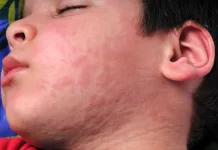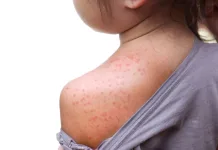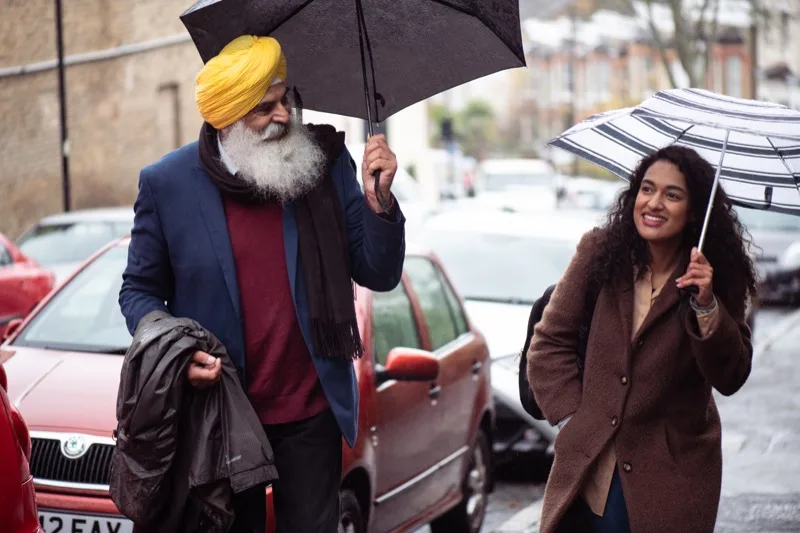
Produced in partnership with the NHS
Autumn is here and the nights are getting longer. During colder months, as we gather indoors alongside family for Eid Milad-un-Nabi, Navaratri, Diwali or Christmas, it can be harder to avoid coughs and sniffles.
But how do we know when we have a cold, flu or something else?

“The severity of our symptoms and how rapidly they start, is a good indicator,” says Dr Muhammed Naqvi, a GP in south London.
“Colds, flu and COVID are caused by different viruses, but have some similar symptoms.”
“These illnesses will usually go away on their own, but please see your GP urgently if you’re coughing up blood and contact 999 if you need emergency help, including for severe breathing difficulties” says Dr Naqvi.
You are advised to contact your GP practice or phone NHS 111 if you’ve had a cough for more than three weeks, your cough is very bad or quickly gets worse.
Other reasons to call include if you have chest pain or find it difficult to breathe, have swollen neck glands, unexplained weight loss, or if you feel very unwell and have a weakened immune system. If you’ve had COVID and have ongoing symptoms, you can also get help through the Your COVID recovery website.

But, is it COVID?
COVID-19 and flu are different respiratory illnesses that have some symptoms in common. For some people, getting flu or COVID-19 will be unpleasant. For others, especially if you are older, pregnant or have certain health conditions, they can be dangerous or even life-threatening.
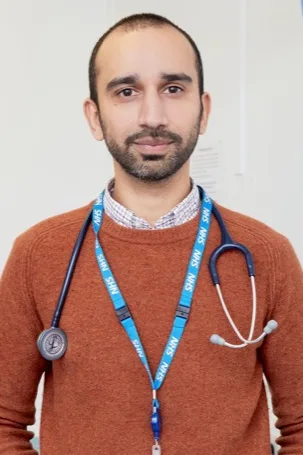
“A new variant of COVID, Pirola, is spreading across the UK, so if you have some symptoms of COVID, it’s advisable to do a test and avoid contact with other people.
“Remember to wash your hands frequently and especially after sneezing or coughing, use a face mask and keep social distancing if you do need to go out.” advises Dr Tehseen Khan, a GP in London.
Prevention is better than cure
“If you’re at increased risk and are invited to get your flu and COVID vaccines, it’s advisable to book them as quickly as possible,” says Dr Khan. “Last winter, flu and COVID-19 vaccines kept tens of thousands of people out of hospital and helped save many lives.”
Pirola is described by experts and the UK Health Security Agency (UKHSA) as the most concerning new variant since Omicron (which emerged in the UK at the end of 2021).
You can book your flu and COVID vaccines if you are aged 65 and over, are pregnant, or have an ongoing health condition that puts you at increased risk of serious illness. Care home residents and people who are housebound are offered both vaccines through visits from a local NHS team.
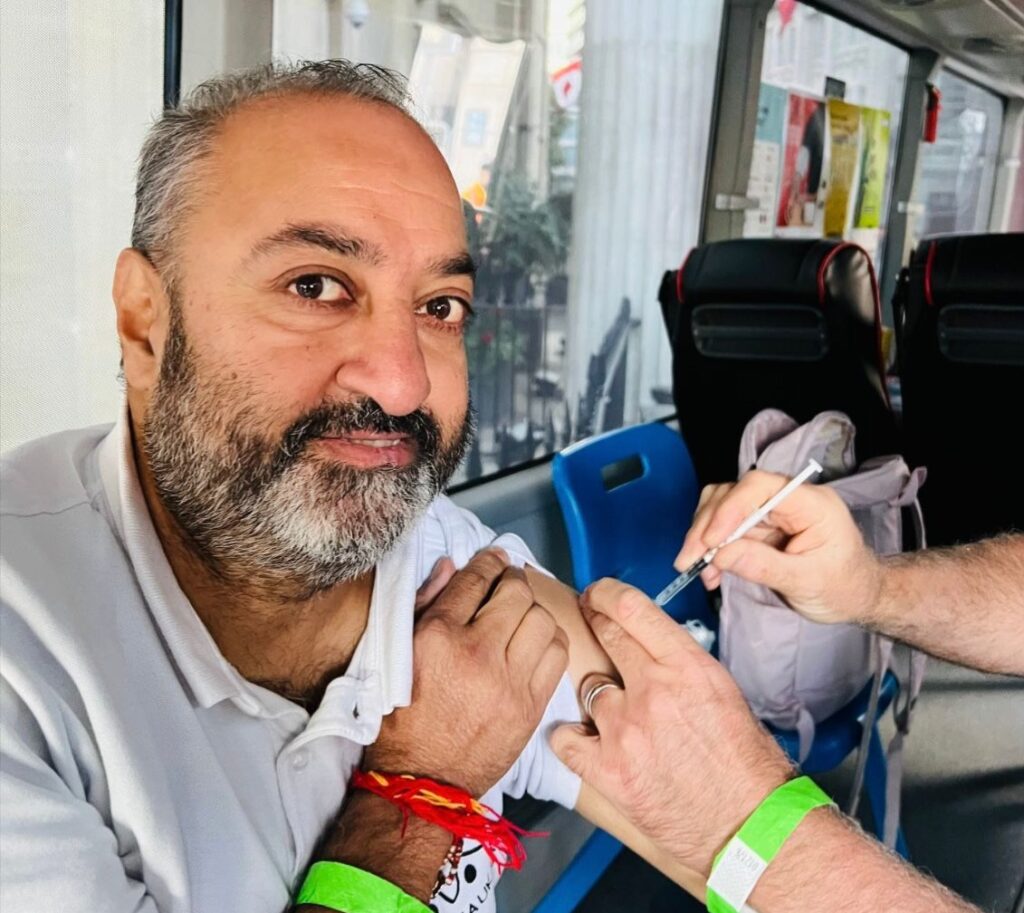
To reduce the risk of passing on flu or COVID to those at highest risk, vaccines are also available to people aged 12 and over living in the same house as someone who has a weakened immune system, paid or unpaid carers, and frontline health and social care workers aged 16 and over.
“You might be offered both vaccines at the same time – this is safe and the most convenient way to get vital protection from both viruses,” says Dr Khan.
“This is important, even if you have had the flu or COVID virus before as both viruses change periodically, and our immunity to them reduces over time.”
All NHS vaccines have a good safety and effectiveness record and have been extensively tested on thousands of people from different communities.
“As frontline health and social care professionals, we’re more likely to be exposed to flu and COVID,” says Dr Khan. “Ahead of what could be a very challenging winter, with the potential for this new COVID variant to increase the risk of infection, I know my best defense is to get my vaccines.”
Does my child have flu, COVID or measles?
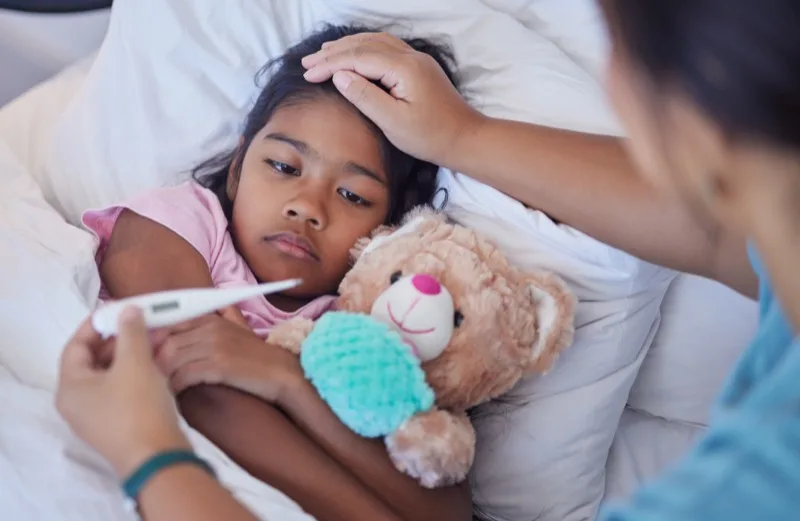
“You can test your child to see if they have COVID-19. For flu, the symptoms in children are similar to those of adults but also lookout for children who might have pain in their ear, or excessively tug their ear, or appear less active,” advises Dr Naqvi.
Measles is also circulating in the UK and across Europe. It usually starts with cold-like symptoms. This is followed a few days later by a rash of flat or slightly raised spots, that start at the head and spread down the body, joining together to make blotches.
Dr Naqvi explains, the rash can appear differently across skins tones: “The rash looks red or reddish-brown on paler skin, while on black or brown skin, the rash might be harder to see. It may look darker or hyperpigmented and might also feel bumpy.”
More information about the rash is available on the World Health Organisation website.
If you think your child has measles, call your GP practice or 111 for medical advice says Dr Naqvi. “Unfortunately, one in five children with measles will need to go to hospital.
“Measles can lead to serious complications including pneumonia (severe chest infection), brain infections (like meningitis) and in rare cases death. It can also weaken a child’s immune system for years after infection.”
It’s also very contagious. Nine out of 10 unvaccinated children can catch measles if someone in their class has it. Keeping your child away from school for at least four days from when the rash first appears can help to reduce the risk of passing it to those who are more vulnerable, like babies, the elderly or people prone to infections.
Protecting little ones
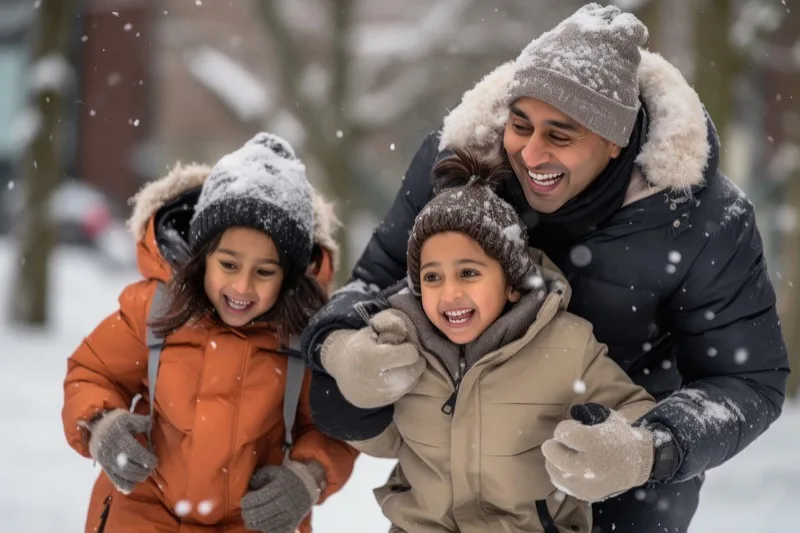
The NHS offers vaccination to protect against many potentially life-changing diseases. You can check your child is up to date with all their childhood vaccinations by looking in your child’s health record – the ‘red book’, or asking their GP practice.
There isn’t a cure for measles but since the measles vaccine was introduced in the UK in 1968, 20 million infections have been avoided and 4,500 lives have been saved.
Dr Naqvi says: “Two doses of the MMR vaccine provide lifelong protection from measles, mumps and rubella. If you or your child has missed one, or both doses of the MMR vaccine, contact your GP practice.”
The flu vaccine is offered to most children aged two and three years old, school-aged children from reception class to year 11 and those aged 6 months and above with certain health conditions.
Dr Khan adds: “School-aged children and teenagers can get their flu vaccine at school or at community clinics. If their child has a long-term health condition, parents can choose whether they have the vaccine at school or a GP practice. But eligible children aged 2-3 will need to go to their GP practice for their vaccine.”
Children normally receive the flu vaccine as a quick and painless spray up the nose.
“Some parents have concerns about the gelatine in the flu nasal spray being derived from pork,” says Dr Khan.
“If you do, it may be worth talking to your religious leader because there may be exceptions for receiving the vaccine since it’s offered to protect health. Also, ask your GP practice about the risk and benefits of having the injectable flu vaccine jab that doesn’t contain gelatine derived from animals.”
To book your vaccines
· If you need help, or an interpreter to book your flu and COVID vaccines, call NHS 119 for free.
· You can also book both vaccines by downloading the NHS App or by visiting www.nhs.uk/seasonalvaccinations www.nhs.uk.wintervaccinations.
· You may also be offered these by a local NHS service such as a GP practice or community pharmacy, and some areas also offer walk-in COVID-19 vaccinations.
· As well as these ways, health and social care workers may be offered their vaccines through their employer.
· In some areas, pregnant women can get the flu vaccine at the antenatal clinic.
· Book a flu vaccine for children aged 2 – 3 through their GP practice (who can also help get any other vaccines your child has missed).
For more advice and information search www.nhs.uk/vaccinations. You can also find out more about vaccines and watch the animation below about how vaccines work that features Doctor Donald Palmer on the British Society for Immunology website.


